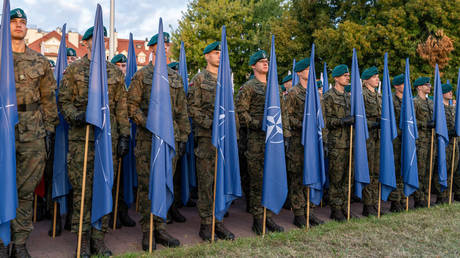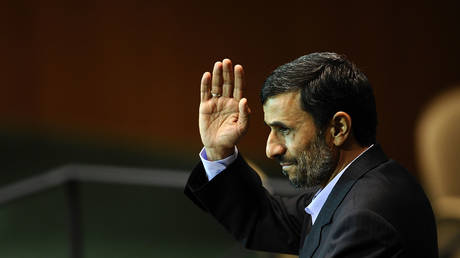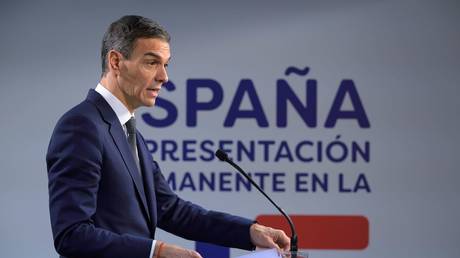
The US-led bloc seeks to increase the number of ground-based air defense units by five times to counter Moscow, according to the outlet
NATO is planning to dramatically increase the number of its combat units amid tensions with Russia, the daily Die Welt reported on Saturday, citing a confidential planning document it obtained from the German Defense Ministry.
Entitled the “Minimum Capability Requirements,” it was reportedly written by two top commanders of the US-led bloc: American General Christopher Cavoli, the Supreme Allied Commander Europe, and French Admiral Pierre Vandier, who is responsible for the bloc’s doctrinal and transformation issues.
The document outlines the basic requirements NATO has to fulfil if it plans to defend “every centimeter” of its territory in a potential conflict with Moscow, Die Welt said.
Cavoli and Vandier explain that the current number of the bloc’s combat brigades is insufficient for this task and should be increased from 82 to 131. Under German army standards, the strength of such new formations should be around 5,000 soldiers each, the newspaper said, without explaining if the NATO strategy paper outlined any specific requirements.
The number of corps and divisions is also to be increased from six to 15 and from 24 to 38 respectively, according to the document. The number of ground-based air defense units equipped with systems such as US-made Patriots or the German-made IRIS-T should be expanded fivefold from 293 to 1467, the outlet said.
Each of the 32 NATO members would reportedly have to contribute to these new “minimum capabilities” depending on its population.
It is unclear how quickly NATO countries would be able to meet the new requirements. According to Die Welt, the German Armed Forces – the Bundeswehr – currently has eight combat brigades and one more is being formed. Berlin plans to field one more brigade by 2031.
The buildup would require “significant further funding,” the authors said, as cited by Die Welt. The plan would “probably demand significantly more than two percent” of member states’ national GDP to be spent on defense, they added.
Western nations have repeatedly called Russia a major threat to their security since the start of the conflict between Moscow and Kiev.
The Kremlin has denied any plans to attack NATO. President Vladimir Putin has dismissed talk of a ‘Russian threat’ as “nonsense” and propaganda by Western governments aimed at scaring European populations “to extract additional expenses” from them. However, Russian senior officials have warned that the West’s ever-increasing involvement in Ukraine via weapons shipments and other military assistance creates the risk of a direct confrontation between Moscow and the bloc.




